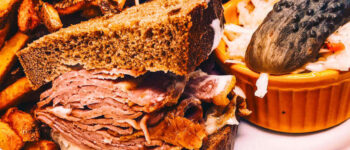Before getting a colonic, there are certain ways to prep, such as drinking plenty of water and eating well, avoiding gassy foods, and not smoking, but what about after a colonic? Should you be careful about what you do?
The process after getting a colonic isn’t as intensive after pre-colonic, but there are still some important things to keep in mind to ensure you feel your best and get the most out of the process.
But first, let’s address what exactly getting a colonic means.
WHAT HAPPENS WHEN YOU GET A COLONIC?
A colonic, also known as colon hydrotherapy, is an irrigation process. After plastic tubes are inserted through the rectum into the colon, the colon is flushed with large amounts of water while one tube gets rid of waste and fluid in there.
The specialist performing the colonic might also help the process go smoothly by massaging your stomach.
See more : 7 Tips to Cook Dry-Aged Steaks Perfectly
Colonics have been used for all types of people and may be especially beneficial for those struggling with issues like constipation or irregular bowel movements. Bottom line, getting a colonic is a process of detoxification of the colon.
Now that you understand what a colonic is, here’s what you should do after getting one.
WHAT TO EAT AFTER A COLONIC
Some people won’t have a normal bowel movement for a couple days post-colonic since the colon has been emptied.
To really benefit your digestion and keep things clean, focus on fiber-rich foods like whole grains (such as quinoa, brown rice, amaranth, or millet), leafy greens and other veggies, and fresh fruits. Fruit juices and smoothies are okay too.
For proteins, beans are an amazing source of fiber—just go a little easy on them and chew them well if you’re not used to eating them. You can also have some free-range chicken or fish as protein sources.
See more : What is Caffeine Anydrous? Benefits, Risks, Comparisons Explained
Fermented foods are also recommended, as they contain helpful probiotics that promote beneficial bacteria in your gut after a colonic. Those foods can include kefir, miso soup. And sauerkraut.
WHAT TO NOT EAT AFTER A COLONIC
Avoid foods that are irritating and high in sugar, caffeine, or processed foods. That includes:
- Chocolates
- Processed or junk foods
- Foods made with white flour or refined sugars
- Dairy foods, such as ice cream or sweetened yogurts
- Tomatoes or citrus fruits (can cause problems for some people)
With anything you eat directly after a colonic, eat slowly and pay attention to your tolerance to the food. After a colonic is a great opportunity to notice any foods you might have an unknown sensitivity to, which can be helpful for avoiding unnecessary irritation down the road.
PAY ATTENTIONS TO ANY SIDE EFFECTS
Always get a colonic from a trusted company to reduce the chances of side effects or complications from inexperience or poorly cleaned equipment. Some more common side effects can be mild abdominal cramps, which should go away soon after the colonic.
If you notice any pain or side effects that don’t go away, always talk to your doctor.
Blue Karma offers high-quality colonics as part of our Blue Spa services. Book or contact us today to schedule your own colon cleanse in beautiful Bali!
Nigel Gildon editor:Nigel Gildon is the editor of Chef Wayne’s Big Mamou: Chef Wayne’s Big Mamou. He has worked in the publishing industry for many years and has a passion for helping new authors get their work into the hands of readers. 63 Liberty Street * Springfield, MA 01003






